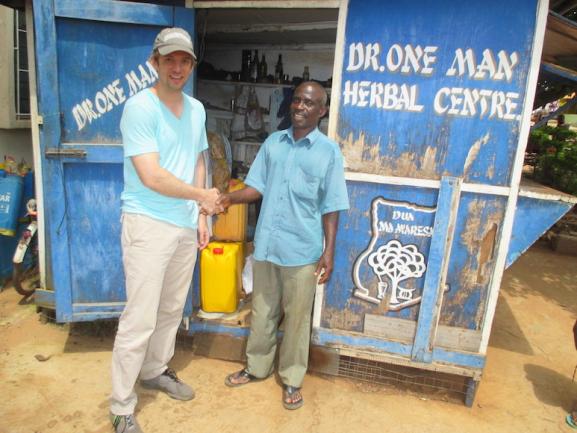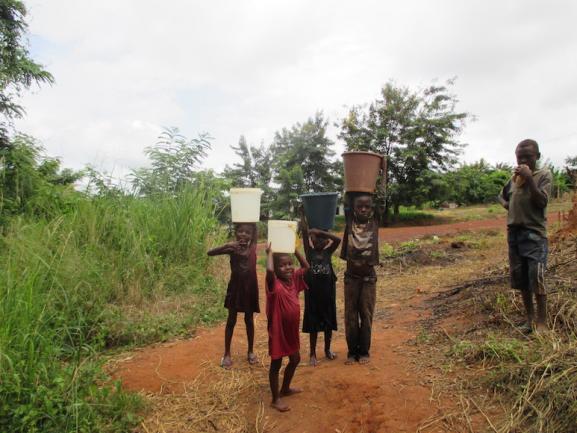Spencer Case ’14
Policy Analyst, RAND Corporation

What drew you to Georgetown’s M.Sc. in Global Health (MSGH) program?
I was interested in global/public health policy and international travel, and the program provided the perfect solution for uniting health-related research, policy, and adventure in a balanced way.
What was the classroom instruction like?
The professors were genuinely interested in our interests; they encouraged us to explore new topics and challenged us to think differently about familiar subjects. For example, in the “Politics of Global Health and Development” class, I wrote a paper that compared a grotesque lack of global health funding for mental health problems (given the high burden of disease) to the substantial funding amounts and burden of disease for HIV/AIDS. I knew about the epidemiology of mental health problems and HIV/AIDs, but before that class I’d never thought about the underlying political contexts driving the funding discrepancy between two areas of great need. Also, the small classes were great, and the exceptional and diverse backgrounds enriched every class discussion and team project.
Where did you complete your field research module, and what was your scholarly project?
I designed and conducted a qualitative research project on global mental health. Specifically, I worked with Kaakyire Gyamfi in Ashanti Mampong, Ghana, where we interviewed traditional and western providers, patients, and caretakers about their perspectives on helping people with mental health problems. We found that people with mental health problems are often treated in traditional settings, and may receive concurrent and conflicting treatments in western and additional traditional care settings. At the time, there were about 55,000 traditional providers in Ghana, and only about 2,000 medical doctors.
The dominant traditional approach to mental health involves treatment within the spiritual realm, and there is little to no cooperation between providers. The research aim was to determine common perspectives across traditional and medical settings in order to align treatment approaches and improve care. My policy recommendation was that sustainable approaches in global health and global mental health should consider local contexts and cultural dynamics, including that of “spiritual treatment.”
What did you learn from the experience abroad?
Anywhere you go in the world, you may see similar things – people are just trying to live their lives a little differently than what you’re used to. Wherever you are, an open mind can make your experience truly exceptional, and you just might make a world of difference for someone along the way!
How did the M.S. in Global Health program prepare you for professional responsibilities?
The MSGH experience provided me with the research and analysis skills to become a Policy Analyst at the RAND Corporation. RAND conducts research across many health and non-health areas. Lately, I’ve been working on projects related to health insurance, pharmaceuticals, and health care quality. I perform a range of duties for each project, including proposal development, data collection and analysis, and writing. My job requires quick learning and dynamic thinking – skillsets that are infused in Georgetown students.
There was a direct transfer of my MSGH training to my day-to-day commitments. For example, in “Research Methods” class, we developed a research project proposal that involved identifying research questions, thinking about how to measure the impact of a policy intervention, and designing a framework for making recommendations about the future policies. The proposal exercise was beneficial in that it prepared me for my own field research proposal in Ghana. It continues to be relevant because RAND’s success relies on winning proposals.
What was it like to attend graduate school in Washington, DC?
The MSGH program offers unmatched opportunities because DC is central to the global health field. The professors are not merely academics, but accomplished global health professionals who are closely connected to organizations with offices in our nation’s capital, like the World Bank, Population Reference Bureau, and Pan American Health Organization. Before I graduated, I already had a consultant position at the World Bank. These types of opportunities are not possible without Georgetown connections!

